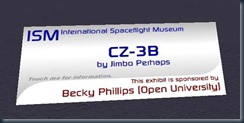Does anyone know what the origin of calling people you are associated with a "Unit"? I'm seeing it everywhere these days. Mother Unit. Spousal Unit. Daughter Unit. It's really interesting how fast a new fad like this catches on and worrying that Internet communication seems to make us all clones.
I attended a really interesting presentation today by Mario Juric from Princeton. Mario talked about the Sloan Digital Sky Survey. This is a survey that has mapped a quarter of the sky (around 8000 degrees) and has catalogued ~100 million objects. The presentation that Mario gave centred on his work relating to stellar density in the milky way galaxy as a function of distance from the centre. They have also done some analysis work on spectral data to ascertain metallaticitys of stars within the surveys range.
A really interesting outcome of this research is that he has possibly found artifacts of the Milky Ways past encounters with other galaxies or objects. This was deduced mainly by density anomalies in the data. What you should see is density of stars decreasing as you work outward from the centre. This holds true for most of the data but in at least two areas (and these "areas are huge), the density of objects sharply increases. The current explanation is that potentially, these are remnants of a past encounter. There are no current conclusions as the whether these areas also have velocity and/or metallicity differences but that is something they are working on.
I guess you could pose other possibilites for the these anomolies. Perhaps Dark matter is "clumpy" - but then we would have to explain why it clumped in these regions. How about an massive compact object such as a black hole that has now evaporated. As the massive velocity changes that this would bring are not seen currently, that seems unlikely. Others have suggested it is related to the warp of the galactic disk. If this is so, what caused the warp? Perhaps that brings us back to an encounter.
So it isn't just fossils from the Earth that describe our history. Cosmic fossils go back way before the Earth was even a galactic twinkle in Mother Natures eye.



